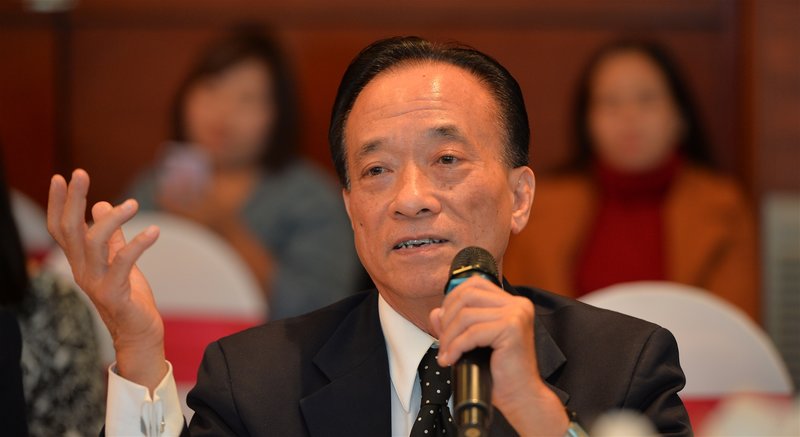Now is right time for Vietnam c.bank to increase forex reserves: Expert
Vietnam trading activities would benefit from a stable exchange market, which is the central bank's target to buy in foreign currency, said banking expert Nguyen Tri Hieu.
At a time when there is low demand for foreign currency, the State Bank of Vietnam (SBV) made a right move in buying in hard currency to increase its foreign exchange reserves and stabilize the market, according to banking expert Nguyen Tri Hieu.
| Banking expert Nguyen Tri Hieu. |
“A low USD/VND exchange rate means an appreciation of the Vietnamese dong (VND), which could cause negative impacts on exports,” Hieu told Hanoitimes in response to the news that the SBV has reportedly bought in nearly US$2 billion in recent weeks.
“Vietnam’s trading activities would benefit from a stable exchange rate,” he added.
In the past weeks, the exchange rate at commercial banks has been hovering around the SBV’s buying rate at VND21,175, or even less in some sessions, informed Bao Viet Securities Company (BVSC).
The alleged move came on the back that Vietnam’s foreign exchange reserves were estimated at a record high of US$84 billion in April.
Vietnam’s trade surplus at a record high of over US$8.4 billion in the seven-month period and low demand for foreign currencies from traders because of disruption in global supply chains caused by Covid-19 are considered major factors behind the build-up of the reserve fund.
Hieu said it is hard to predict what would happen to the foreign exchange market in the remaining months of the year, as a number of factors are influencing the US dollar.
According to Hieu, the US government is considering a new relief package, which could result in a huge amount of dollars being injected into circulation, not to mention the interest rate at nearly 0% in the US market.
The uncertain Covid-19 situation in the US as well as the presidential election in November could also affect the greenback, Hieu noted.
Unlikely to be labeled as currency manipulator
As for the risk that Vietnam may be labeled as a currency manipulator by the US, Hieu said this is unlikely given Vietnam’s modest size of foreign exchange reserves compared to other countries.
“The amount that the SBV is said to have purchased is too small to exert a major impact on the global financial market, or for the US to consider Vietnam as a currency manipulator,” Hieu stated.
Moreover, Vietnam’s trade surplus with the US, standing around US$24.4 billion as of June 30, does not have much effect on the latter’s economy, Hieu asserted.
Vietnam is currently in the US Department of Treasury’s monitoring list for currency manipulation, which also comprises China, Japan, South Korea, Germany, Italy, Ireland, Singapore, Malaysia and Switzerland.
According to the US agency, an economy that meets two of the three criteria in the Trade Facilitation and Trade enforcement Act of 2015, or the 2015 Act, is placed on the monitoring list.
Among these three criteria is “the persistent, one-sided intervention occurs when net purchases of foreign currency are conducted repeatedly, in at least six out of 12 months, and these net purchases total at least 2% of an economy’s GDP over a 12-month period.”
In a report released early 2020, the US Treasury Department said Vietnam’s net purchases of foreign exchange were 0.8% over the four quarters through June 2019, adding the country’s reserves remained below standard adequacy metrics and there was a reasonable rationale for rebuilding reserves.
Further, while purchases of foreign exchange outweighed sales over the course of these four quarters, the SBV intervened in both directions, selling foreign exchange to resist downward pressure on the Vietnamese dong in the second half of 2018.
Vietnamese officials have several times affirmed that the country does not seek to manipulate its currency for unfair trade advantages.













